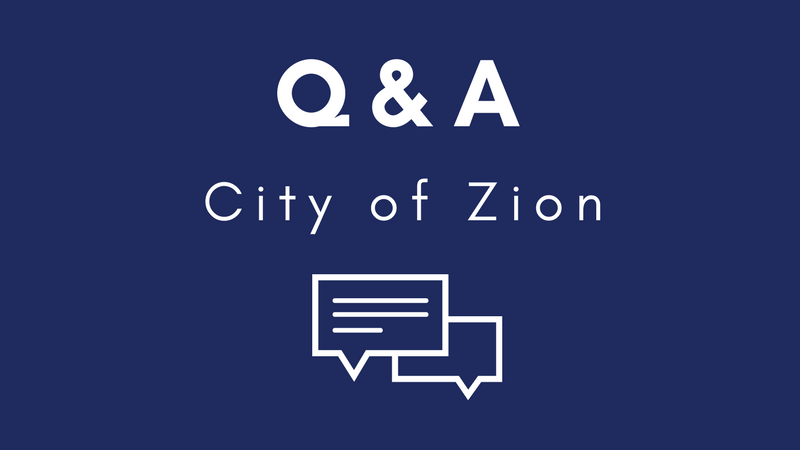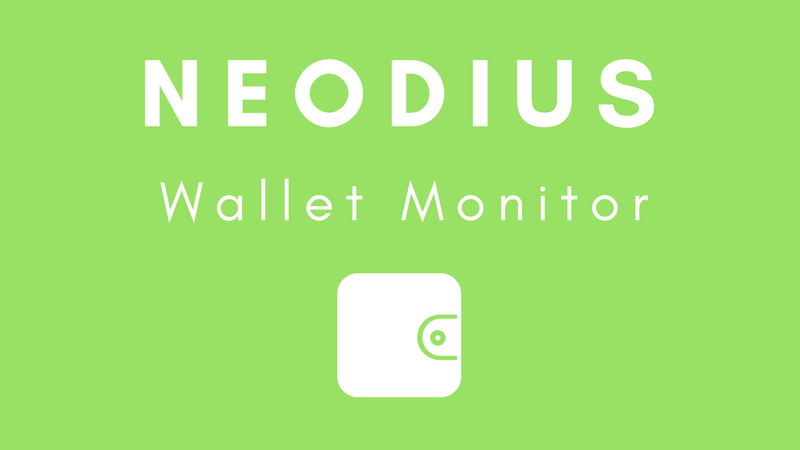
Two weeks ago we published an interview with City of Zion founder Canesin. The article was very well received by the NEO community, which has inspired us to do a whole series of Q&A’s with City of Zion Council members.
Through these Q&A’s, we hope that the NEO community will gain deeper understanding into the members of the City of Zion Council, and the various projects under development. By highlighting specific projects, we hope that open-source developers will be attracted to join the community and accelerate development of these City of Zion initiatives, that aim to enable the long-term success of the NEO platform.
This week we spoke to lllwvlvwlll, otherwise known as City of Zion’s resident puppy. lllwvlvwlll is one of the earliest open-source contributors to the NEO project, making him a natural selection to join the City of Zion Council. He wrote the English consensus algorithm documentation when little other English documentation existed, and also authored the NEP5 token standard. His current project, neo-js, will greatly reduce the barrier of entry for developers who want to work with the NEO blockchain.
lllwvlvwlll tells us about all this and more.
Dean – NEO News Today: Firstly, I have to ask – Why lllvwlwvlll and how on earth is one supposed to pronounce it?
lllvwlwvlll: Well, I like palindromes and the symmetry of it. It is also extremely difficult to find a username that is universally available on all major media outlets. Pronouncing it… Most people in the NEO / CoZ community call me lll, but I also respond to pupper (and most other dog references).
Dean – NNT: Can you tell us a little bit about your background as a developer and how you first came into blockchain, and subsequently NEO?
lllvwlwvlll: I actually have a background in Systems Engineering and Controls and have spent a lot of my career doing system architecture for company internal and external products in the biomedical and computer hardware fields. I believe my personal interests in system architectures is what initially led me to this ecosystem. There are a lot of novel applications in this space that I can learn from. NEO was one of those applications that I found particularly interesting.
Dean – NNT: How did you first get involved with City of Zion?
lllvwlwvlll: I’ve always had a passion for distributed systems and really enjoy learning about new algorithms. In learning about about AntShares, I was curious to learn more, but there wasn’t very much English documentation about how the system operated (specifically the consensus algorithm). I joined the Slack channel and asked, but the entire thing (to the global community) was somewhat unclear, so I ended up just writing my own based on some research and a few conversations with Erik so it would be clear to others later. After that, the projects started to show up organically.
Dean – NNT: You’ve contributed so much to NEO in a relatively short amount of time in the form of documentation, smart contract development, and other projects we’ll discuss in a moment. What was it about NEO that made you want to invest your time and effort into developing this platform?
lllvwlwvlll: There are a few reasons why I enjoy contributing to this community, but the primary one is the bare-metal contact of the NEO Council with the community. When you develop on/for this platform, there is a large team with a very diverse skillset that is available to support you. The entire community is very empowered and I believe that the nominal familiarity about the technology is greater here than on some of the other blockchain projects as a result. Because of the diversity of the platform, you are also exposed to new things all the time, which is a great learning opportunity as well.
Dean – NNT: Among your contributions was the authoring of the NEP5 token standard. For those who don’t know what that is, it’s basically the NEO equivalent of the Ethereum ERC20/223 tokens. This sounds like a pretty important milestone. What were some of the challenges of that project, and are there any key functional differences between NEP5 and ERC20?
lllvwlwvlll: In NEO, we needed to create a token standard that was light-weight and also made sense when developing contracts across the languages supported by the platform. There were a number of methods in the original proposals where that would not have worked. We originally had a number of methods which implied a mechanic for token deployment. I think we’ve reached a consensus on a standard that is extremely flexible, but also provides enough control to allow applications like exchanges to integrate easily. One of the primary differences between the NEP and ERC standards is the addition of ‘optional methods’ that are not required. In many implementations, things like ‘allowance’, and ‘transferfrom’ aren’t necessary.
Dean – NNT: You’re currently working on the neo-js project which is going to make NEO so much more accessible to developers who want to build applications. Can you explain in basic terms what neo-js is and why it’s going to be so important?
lllvwlwvlll: Neo-js is a community project to develop a Node.js module that integrates with the blockchain. Historically, developers had to write their own custom code to add NEO support to their application. There are a lot of mechanics that can be very time consuming and difficult to implement so the barrier to entry for developers was very high. We are packaging all of that functionality into a library that developers can include in their applications to get complete blockchain functionality (as both ‘full’ and ‘light’ nodes) out of the box.
Dean – NNT: Another project in the pipeline that will be a huge boost to developers is the Neon Developer Environment. Can you tell us a little bit about NDE and why this is a project you’re excited about?
lllvwlwvlll: NDE is a pretty big project for CoZ. We have ~4 council members and a number of other community members involved in the project. In Neon wallet, the goal was to create a streamlined wallet interface for users. You can think of the NDE project as the ‘develop’ version of that application. It will have a lot of extended tools for things like smart contract development and dApp development. Afong and Unignorant have been doing some work on the architecture for that project and I think it’s going to be pretty awesome!
Dean – NNT: The more I talk to members of City of Zion, the more I realise just how much groundbreaking work is going on behind the scenes. How enjoyable do you find it working with CoZ and the NEO community in general?
lllvwlwvlll: To be honest, sometimes it can be pretty stressful. There are a lot of late nights spent working to grow the community and the platform. We also spend a lot of time (especially afong and fabwa) trying to protect the community from ‘dishonest visitors’ that are trying to take advantage of how trusting everyone is. That being said, this project means a lot to me. I learn something new from the community every day and the amount of support everyone provides is amazing. A good example of this is our design team that is entirely comprised of volunteers. All of the amazing graphics for CoZ as well as some of the NEO work is done by them. It’s truly amazing.
Dean – NNT: I asked Canesin this question last week, but I think readers will love to hear an answer from all the CoZ developers – What is your personal vision for NEO in 5 years time, and how do you see the platform being adopted and used in the future?
lllvwlwvlll: First, I’d like to mention how important I think it is that our platform is open source. I think that a closed source implementation in this field completely undermines the spirit of the blockchain technology. I think we also underestimate the power of legally defensible assets on the blockchain (they often get overshadowed by the value of smart contracts). In the near future, I think we’ll see the start of these assets being issued (maybe to represent lambos?) and smart contracts being used to handle the loans etc…I think these two features being implemented together is the future and I think they both need to exist in any mature blockchain technology.
Dean – NNT: The first CoZ dApp competition is running at the moment and the prizes are awesome. With the GAS prices at the time of this writing, the total prize pool is over $320,000 USD in value. Do you have any words of advice for aspiring NEO developers who want to get involved?
lllvwlwvlll: RTFM…errrr…Please read the documentation and join the Slack channel. Then ask a lot of questions. Our community is awesome and will provide help to people that ask. This may be my systems background talking, but my ‘votes’ will be going towards projects that have a solid architecture and show evidence of sound planning (even if they aren’t fully functional on the blockchain). If anyone has any questions, they are welcome to message me on the Slack channel and I will do my best to help or will forward them to someone who can.
Dean – NNT: Are there any final thoughts you’d like to leave with our readers?
lllvwlwvlll: Woof…
Dean – NNT: Thank you so much for your time and all your contributions to the NEO ecosystem!







About The Author: Dean Jeffs
Dean is a digital project manager who has worked extensively with start ups and agencies in the marketing space. Fascinated by the potential applications of blockchain technology, Dean has a passion for realising the new smart economy.
More posts by Dean Jeffs